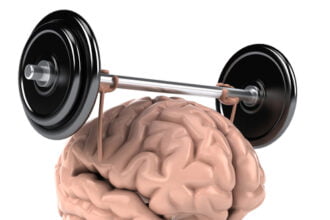There are some patients we doctors never forget. They linger in our memories for various reasons. Often, it is their serious or unusual medical condition that stays with us.
There are some patients we doctors never forget. They linger in our memories for various reasons. Often, it is their serious or unusual medical condition that stays with us. On other occasions, it is a zany or unique personality that we recall, even years later. Rarely, when the doctor-patient relationship becomes injured, then the patient may become unforgettable.
I remember a particular patient from 20 years ago for a very different reason. I recall him clearly because he rejected my medical advice to him with aplomb. Although I haven’t seen him for two decades, I will never forget him. He taught me a lesson, which is not surprising since patients are our best teachers. There are no CME credits for these lessons, but I’ve learned more from them than I have at many medical conferences or from medical journals.
It was July 1991, a month after I completed my fellowship in gastroenterology. I had jointed a multispecialty group, and I was the only gastroenterologist in this particular site of the clinic. There was no senior gastroenterologist to supervise me. What a comfort it was during fellowship training to have seasoned clinicians nod affirmatively to my diagnostic plan, or point out what I overlooked. To this day, I wish I had one of these master clinicians sitting quietly in the back corner of my exam rooms to mentor me. In July 1991, I was now responsible for my own advice. Despite excellent training, I was anxious that it was my finger on the trigger.
I performed a screening colonoscopy on this man and discovered a large, flat lesion in the upper part of the large intestine. A biopsy indicated that this was a pre-cancerous polyp, although it was possible that there was cancer present that was not sampled by my biopsy instrument. (Biopsies only obtain tiny pieces of tissue, which may not be representative of the entire lesion. Physicians call this phenomenon sampling error.)
This concerning lesion could not be removed with the scope, so I recommended that he consult with a surgeon to discuss an operation. He listened and calmly declined my advice. More accurately, he offered a conditional decline. He stated that he would see the surgeon, but not until 4 months had passed. This was unexpected as most patients want their surgeries to occur yesterday. The patient made clear that there was no earthly force that would alter his decision. This mystery entered the theater of the absurd when I learned his reason for the delay. Here are some choices. Take your best guess.
- He and his family were about to leave on a 4 month cruise.
- November was his lucky month and he wanted surgery then.
- It was golf season, which was sacred.
- His medical insurance coverage would become active November 1st.
- He intended to travel to Mexico for alternative medical care.
I surmise that most readers did not select the correct answer. This man was a golf fanatic, and even the possibility that he harbored a colon cancer, would not coax him off the fairways. Interesting priorities. We physicians need to remind ourselves that patients make the decisions, even though we often believe that we have the right answers.
The denouement? Months later, he underwent surgery and a large benign lesion was removed. I think I was more relieved than he was.
If this guy’s appendix or gallbladder were to go bad, I hope it happens during wintertime. Surgery can occur in any season. But, golf…








